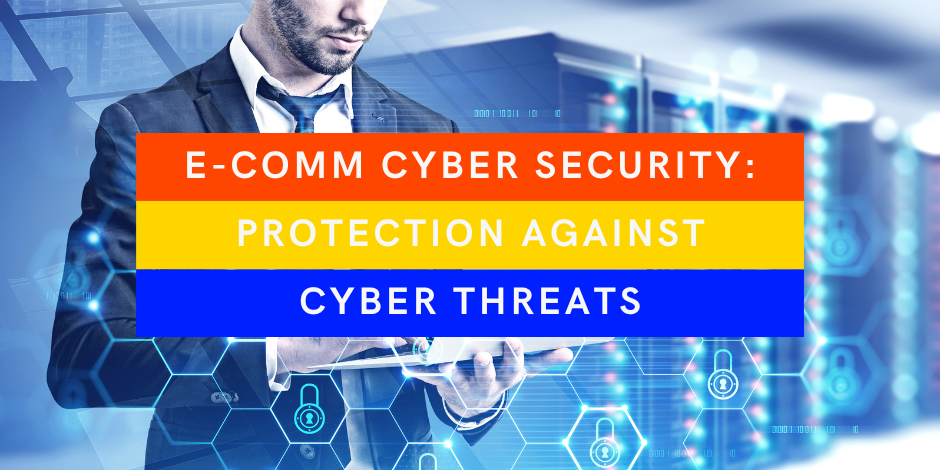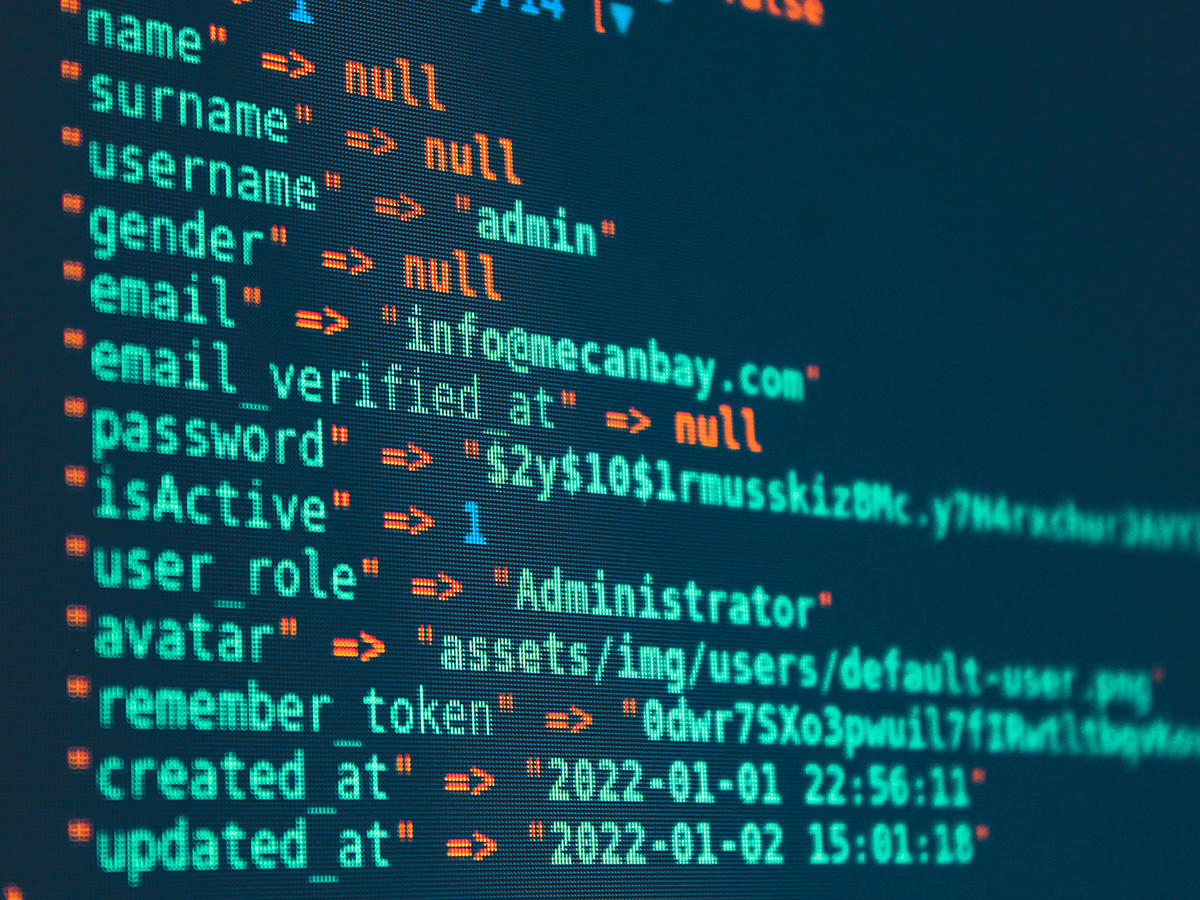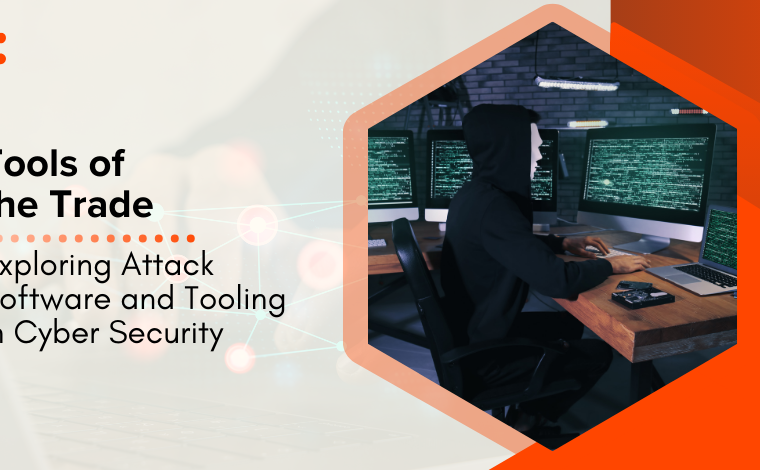E-commerce Cyber Security: Protection Against Cyber Threats

Stay Informed With Our Weekly Newsletter
Receive crucial updates on the ever-evolving landscape of technology and innovation.
E-commerce cyber security is a non-negotiable necessity for modern businesses and consumers in our post-pandemic world, as most of the global population has shifted to online shopping. The rising surge of data presents a critical need for accelerated digital transformation and a strong knowledge of common cyber threats that plague online stores.
Cyber security experts use different strategies to protect eCommerce businesses depending on their specific needs. However, the fundamental idea behind all counter-strategies is to prevent all online transactions and data transfers from unauthorised access. This is only possible if businesses redesign a strong cloud security strategy from scratch and use a mix of AI tools with supervision by IT experts.
In this article, we will look deeper into the importance of cyber security in e-commerce websites, the cyber threats they face, and some excellent counter-strategies they can implement for protection.
Why is e-commerce cyber security important for modern businesses?

E-commerce cyber security is crucial for businesses because it helps them maintain data security, customers, and overall revenue. Several guidelines and protocols determine e-commerce security strength and ensure that every online transaction and product exchange is safe for businesses and customers.
Before implementing the right security solution, it is crucial to understand what data breaches are and what solutions are available to the e-commerce store, depending on the size of the business and the threat it is exposed to. An e-commerce security breach is when hackers access a customer’s identity, financial details, and other sensitive information.
Since cybersecurity threats are continuously evolving and becoming more potent, it is also essential to have a diverse security system that can protect your customer’s personal information and maintain a positive reputation for your business.
Modern security tools incorporate advanced AI and ML capabilities in their solutions and robust analytics tools to ensure continuity with these results. Check out this article to learn more about how digital transformation can improve your business!
These tools protect customers from suspicious elements on the page where they place their orders down to the digital platform they use to make payments. In the following section, we will take a deeper look at some of the common threats that impact e-commerce businesses:
Types of e-commerce security threats

All e-commerce security threats are usually aimed at stealing consumer data or impacting an e-commerce store’s operations in some way. For instance, hackers create counterfeit sites that look like legitimate stores at little to no cost. These sites can be used to perpetuate scams and steal incoming customers’ financial details. They can also try to manipulate the reputation of intellectual property by changing it to suit their agenda.
Other common threats include e-skimming, distributed denial-of-service attacks, and spam messages. E-skimming usually starts as a social engineering attack at a base level, after which hackers attempt to gain control of the payment processing page on your site. Once they have done that, they can view the data input and transactions shoppers make in real-time, allowing them to steal credit card information easily.
While a phishing attack is a common way of hijacking the checkout page, other methods like brute force attacks, third-party manipulation, and cross-site scripting attacks are also commonly used. On the other hand, spam attacks will have hackers posting several repetitive comments on your site in an attempt to penalise your standing with Google SEO.
While these attacks are often used to discourage user engagement and impact a store’s SEO ranking, spam comments might contain links luring users to sites with malicious software and viruses.
Lastly, we have the DoS and the DDoS attacks, primarily used to shut down e-commerce stores completely. In both instances, threat actors flood the target store with multiple requests and visits from different anonymous sources, causing the server to overload and halt operations. This can be particularly damaging during hot-selling periods as e-commerce store owners cannot afford to have their sites down.
If you want to learn more about the 9 types of common cyber threats for modern businesses, you can read our detailed guide on the topic!
How can you prevent e-commerce cyber security attacks?

You can prevent e-commerce cyber security attacks by implementing e-commerce security solutions like authentication measures, securing payment gateways, getting the help of data security specialists, and using security tools with AI capabilities.
It is also necessary to comply with the security standards your store is subject to, use secure hosting sites, and use effective plug-ins that can limit interaction with untrustworthy sites. These tools can monitor website traffic and allow legitimate users to access your sites.
Next, we take a more detailed look into some excellent measures that ensure e-commerce security:
Authentication measures
E-commerce authentication as a concept is based on the belief that both the seller and the customer on e-commerce websites should be real people, and they should be able to provide proof of their identities in some way. Business owners can identify and authenticate themselves and their users in several ways, and it is essential to implement these measures as they help build trust and close sales.
One of the most common authentication measures is to use SSL to encrypt personal data transfers within a computer network. SSL certificates on your e-commerce sites will allow you to use HTTPS instead of the standard HTTP in your web address, which generally indicates that your site is safe and verified.
It would also help to hire an expert that can help you set up more advanced authentication measures like multi-factor authentication and 2-step verification. These measures will ensure that only authorised individuals can log in to the store.
Secure CMS platforms
CMS or content management system tools are software solutions that make it easier for entrepreneurs to set up online stores without writing any code. These tools, such as Shopify, are also excellent for managing the stores as they can edit, publish and create digital content.
While these e-commerce platforms make online selling more accessible to people with a non-technical background, it is essential to be careful when picking out the CMS tool by performing diligent research to ensure you choose a tool you can rely on.
Check that the tool follows global security standards so that customers from all backgrounds can access the site and purchase from it. It is also essential to ensure that your published site will carry an HTTPS tag, as even the most aesthetic store lacking it would be a red flag for potential customers.
Lastly, it is essential to perform timely reviews on your stores’ security on CMS sites and ensure your security setup is always up-to-date and protected against vulnerabilities.
Data security
E-commerce stores are based around data transfers from different computer networks at their core, so data security is a must for these online businesses. There should be specific standards of confidentiality, and business owners must ensure that only the customer can view their personal information and financial details.
Confidentiality breaches can result in high legal costs for a business, so it is best to incorporate data encryption, firewalls, and other advanced anti-virus software as part of your store’s data security. Plug-ins are also particularly useful for monitoring incoming network requests and blocking malicious networks altogether.
To juggle customer experience and business operations effectively, an ideal strategy would be to hold on to as little customer data as possible and restrict sensitive data to senior management only. This way, there is always an ultimate layer against security issues, as you cannot lose what you don’t have.
Compliance with security standards
Compliance with e-commerce security standards is essential for store owners, and falling off course can sometimes result in legal repercussions. Different institutions, including government bodies, set these standards, and while they do not guarantee site security, it is essential to understand and incorporate them into your security plan.
While you will likely lose customers and revenue in case of non-compliance, other businesses and seasoned professionals may be hesitant to associate themselves with you. In some cases, you might even lose your business license, which makes it mandatory to comply with these e-commerce regulations regardless of the size of your business.
E-commerce businesses have some specific regulations they need to consider, including customer privacy, international transactions, shipping regulations, and insurance. Since international shipping can come with its share of taxes and customs duties, most e-commerce outsources these complex calculations to a third party that evaluates the overall shipping cost.
One common regulation mandatory for most eCommerce sites is the PCI-DSS, the “Payment Card Industry Data Security Standard.” The PCI DSS regulation ensures credit card data protection, and while it does not involve the actual transaction, it ensures that a customer’s financial details are well protected.
AI security measures
Several financial companies like Mastercard, Visa, Paypal, and Payoneer are developing and testing AI tools with advanced machine learning tech to help monitor, detect, and prevent financial fraud affecting e-commerce store owners and their customers.
These AI systems can predict potential financial security issues or card fraud by monitoring all incoming and outgoing data transfers with a company and using the logs to rank client security risks and pinpoint system vulnerabilities.
AI-powered tools can also drastically improve incident response, especially with modern attacks that are often quite advanced. Security teams use AI to facilitate data recovery and get things back in line after such attacks while focusing on stabilising the network and preventing any further data loss themselves.
24/7 AI monitoring is an excellent tool for e-commerce store owners, especially if they have a lot of sensitive information in their database that needs to be protected from cyber criminals with malicious intent.
Conclusion
Incorporating security conventions like TLS and SSL is an excellent way to improve your e-commerce store and customers’ security. In addition, investing in a strong security infrastructure will increase customer trust in your services, which could lead to higher sales.
If you want to learn how to protect your e-commerce business from cyber attacks, check out our free webinar. Alternatively, feel welcome to connect with our team for a consultation to discuss how you can start your cyber security career.




